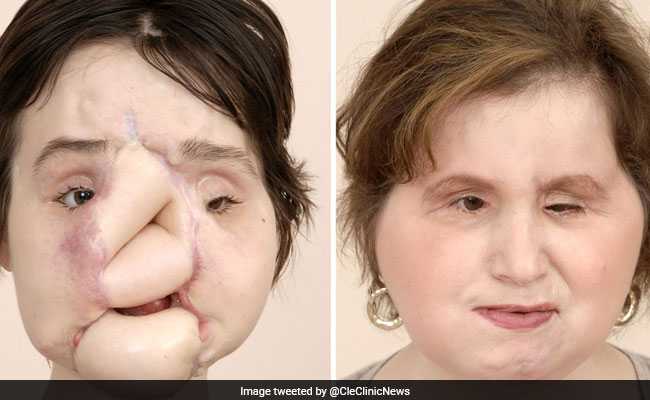Katie Stubblefield, who is 21 years old, has started a new chapter in her life after undergoing a face transplant operation that lasted for 31 hours. She had 17 operations under her belt when she eventually submitted herself to the transformative operation.
According to CNN, Katie Stubblefield’s face was permanently scarred as a result of an attempt at suicide she made when she was 18 years old. This followed a series of emotional challenges she endured as a teenager. Katie’s self-inflicted gunshot wound resulted in the loss of her mouth and nose, and it also caused her eyes to move, which caused her eyesight to be impaired.
A video that was uploaded by the Cleveland Clinic, the facility where Katie’s operation took place, reveals that the physicians were able to successfully transplant one hundred percent of her face, achieving results that cannot be described as anything other than amazing.
According to the Cleveland Clinic, the pre-operative planning included the use of several techniques and technology, including surgical rehearsal, 3D printing, and virtual reality.

Throughout every step of this process, Katie’s family provided unwavering support. A film produced by the hospital has her father Robb making the following statement: “This journey has been four steps forward, two steps backward, but there has always been progress.”
Katie Stubblefield, a 21-year-old suicide survivor from the United States, had a historic face transplant in March 2015.
Katie Stubblefield, before and after her face transplant in August 2018.
In 2016, the 21-year-old patient was placed on the waiting list for a face transplant. A little over a year and a half later, a donor was located, and Katie became the 40th patient in the world to have a face transplant. In May of 2017, she had surgery, making her the youngest person in the United States to go through with the treatment at the time.
According to CNN, she will have to take medicine for the remainder of her life in order to reduce the likelihood of her body rejecting the organ transplant. In addition, she is participating in physical and occupational therapy and receiving assistance from a speech therapist.
Katie’s story was covered in National Geographic magazine, and the publication chose her to represent their September edition on the magazine’s cover.



